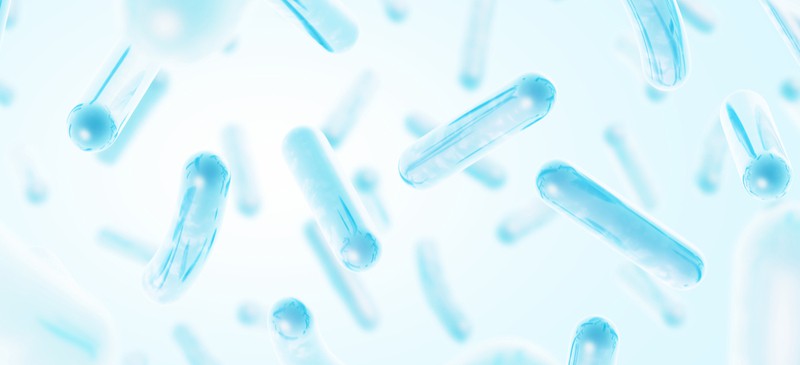
Just about every type of supplement, plus the majority of medications, too, have the potential to cause side effects. But what are “side effects” exactly, and why do they occur?
A side effect is any typically undesirable effect of a drug or medical treatment. When a supplement, over-the-counter drug, or prescription causes side effects, it can be due to a number of causes, such as changes in digestion and nutrient absorption.
While most reactions due to taking probiotics are actually good and beneficial — for example, they can support normal digestive processes that lead to less diarrhea or constipation —it’s still possible for some people to react to probiotics poorly.
Let’s look at how probiotics work in the body, along with the pros and possible cons of introducing them into your routine.
Potential Short-Term Side Effects
Probiotics, or beneficial “good guy” microbes, are available from both fermented foods and also probiotic supplements. The main purpose of taking them is to allow for healthy bacteria and yeasts to thrive in your gut microbiome, which helps to counteract the effects of harmful microbes.
Can probiotics make your gut feel different? In most cases, probiotics cause positive side effects, especially for gut health, digestion and immune defenses. But they can take some getting used to, particularly for people who haven’t been consuming probiotic foods regularly.
It takes time for the gut microbiome to adjust to new microbes, including otherwise healthy probiotics. This is why it’s recommended that people begin taking a lower dose of probiotics initially (measured in CFUs, or colony forming units) and then work their way up to a higher CFU count with time.
While someone’s gut becomes accustomed to higher levels of probiotics, it’s possible for some side effects to occur, usually temporarily for a couple of days or weeks.
What Are the Side Effects of Too Many Probiotics?
These can potentially include:
- Bloating and gas, since some gut bacteria produce gas as a normal byproduct.
- Abdominal pain.
- Changes in bowel function, such as going to the bathroom less often or more frequently (aka constipation or diarrhea).
- Headaches. Rarely, histamine reactions can occur if a certain microbe isn’t tolerated well, which might cause tension headaches, sluggishness or even redness and swelling, too.
- Also rarely, symptoms due to an allergic reaction can occur from other ingredients used in some probiotic supplements (such as soy, lactose or gluten). Allergies can cause symptoms such as an itchy mouth, watery eyes, rash or runny nose.
Who Should Not Take Probiotics?
Probiotic supplements are considered safe for most people, and even children, but studies have found that those who have compromised immune systems may react badly to certain probiotic strains.
One systematic review uncovered evidence that people who are severely ill, those who have recently been hospitalized or had surgery, and those with severe allergies should all be very precautious when taking probiotics. It’s rare but possible for some probiotics to cause infections or GI problems in these at-risk groups.
In these cases, it’s best to consult with a healthcare provider before beginning to make any new type of probiotic.
Other groups who should use caution include those who have pancreatitis, inflammatory bowel disease or sick infants.
READ RELATED: US expat points out the differences between Australian and American petrol stations in viral TikTok
Positive Side Effects of Probiotics, Sooner and Later
Research shows that probiotics affect the upper small bowel and the colon. Positive (and negative) effects on gut function after supplementation are influenced by an individual’s unique microbiome composition and structure.
After taking probiotics for at least two to three weeks, positive changes in the gut are likely to occur. This happens as the gut microbiome becomes more balanced in terms of the ratios of different bacteria, yeasts and fungi populating it.
Signs that probiotics are working can include:
- Improvements in digestion, such as less occasional diarrhea, bloating and constipation.
- Help with immune support and defenses, which can occur due to enhanced gut lining integrity (your gut is where the majority of your immune system is found). Taking probiotics may help ward off certain health problems, such as allergies and food intolerances.
- More energy, such as due to help with nutrient absorption.
- Potentially help managing conditions such as autoimmune diseases or GI issues, including rheumatoid arthritis, Celiac and Crohn’s diseases, ulcerative colitis, multiple sclerosis and others.
While your gut microbiome is where the majority of the microbes in your body are found, some microbes are found elsewhere too, such as on your skin and in your mouth. So taking probiotics may also help to keep these microbiomes healthy as well.
Why It’s Important for Most People to Take a Probiotic
Many people today lack naturally-occurring probiotics in their diets, due to eating little fermented/probiotic foods and not consuming fresh, organic fruits and veggies that can carry beneficial microbes from soil.
This means that most can afford to boost their intake with help from a convenient probiotic supplement, which is most often taken in capsule form.
Is it safe to take probiotics daily? Each person has a unique microbiome, but yes, most can safely take probiotics on a daily basis. This is why probiotics are “generally recognized as safe” by organizations such as the FDA.
Probiotics can be taken daily by both adults and children to support digestion, gut health and immune function.
Ideally, look for a hardy supplement such as one that contains soil-based organism (SBO) probiotics, plus prebiotics and postbiotics for powerful gut benefits.
What makes SBO probiotics special? SBOs are uniquely resilient because they can withstand the harsh environment of the digestive tract, meaning they actually make it to the right part of the gut where they confer benefits. They also don’t require refrigeration to survive.
Additionally, prebiotics (as well as high-fiber foods) act as fuel for probiotics, while postbiotics are the metabolites (enzymes and organic acids) that are created by probiotics. Together, these three work together to provide the best support for overall digestion.
The majority of people should supplement with a probiotic supplement that provides between 25 and 50 billion CFUs per serving. Start with a lower amount and work your way up to give your body time to adjust.
Conclusion
- While probiotics are generally well-tolerated and considered to be safe for most people, probiotic side effects can affect a small percentage of the population.
- Possible probiotic side effects can include: gas, bloating, constipation, diarrhea and abdominal pain. Rarely an allergy or histamine reaction may also occur.
- People with compromised immune systems, those who are hospitalized, ill infants, and those with IBD or pancreatitis should use caution when beginning any new supplements.
Source:







